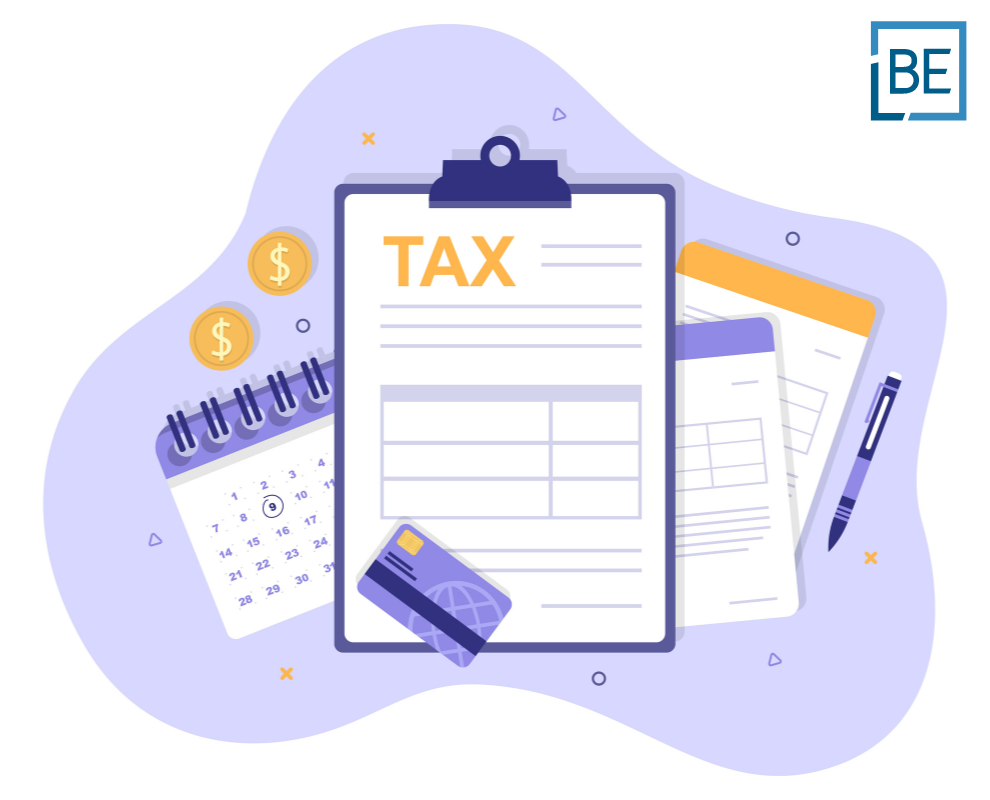Belaws Home ›› Thailand ›› Blog ›› Personal Income Tax for Thai and foreign-sourced income
accounting and secretary
Personal Income Tax for Thai and foreign-sourced income
Taxpayers in Thailand are divided into two groups, residents and non-residents. Residents of Thailand are taxed on both Thai and foreign-sourced income, whereas, non-residents are only taxed on Thai-sourced income.
This post will explore the differences between Thai-sourced income and foreign-sourced income and the implications this has on Personal Income Tax (PIT) in Thailand.
Key points
- Personal income tax is imposed on both residents and non-residents.
- PIT is based on the person’s assessable income derived from employment or business undertaken in Thailand.
- Thai-sourced income is any income earned from employment or business undertaken in Thailand, regardless of whether the income was earned inside or outside of the country.
- Income earned abroad will also be considered foreign-sourced income.
- Foreign-sourced income that was remitted from abroad into Thailand after a period of more than 1 fiscal year is generally exempted from PIT in Thailand.
What is personal income tax?
Personal income tax is a tax imposed on a person’s assessable income and on both residents and non-residents.
Both residents (people who live in Thailand for a period or periods which total more than 180 days per tax year) and non-residents have to obtain a personal income tax ID and submit an annual personal tax return.
Assessable income in Thailand is categorised into eight categories:
- Income from employment. Income from the hire of work, office of employment, or services.
- Income from goodwill, copyright, franchise, patent, or other rights.
- Income from interest, dividend, bonus for investors, gain on amalgamation, acquisition or dissolution of a company or partnership, or gain on transfer of shares.
- Lease of property, breach of a hire-purchase agreement, and installment sale contract.
- Income from liberal professions, such as law, medicine, engineering, architecture, accountancy, and fine arts.
- Income from a contract of work whereby the contractor provides essential materials other than tools.
- Income from business, commerce, agriculture, transportation or any other activity not mentioned above.
How is income tax calculated in Thailand?
Thailand makes use of a progressive tax system for personal income tax, the rates of taxation can be seen below:
| Taxable Income | Tax Rate |
| 0 – 150,000 | Exempted |
| 150,001 – 300,000 | 5% |
| 300,001 – 500,000 | 10% |
| 500,001 – 750,000 | 15% |
| 750,001 – 1 million | 20% |
| 1,000,001 – 2 million | 25% |
| 2,000,001 – 5 million | 30% |
| 5,000,001 or more | 35% |
What is Thai-sourced income?
Thai-sourced income is any income earned from employment or business undertaken in Thailand, regardless of whether the income was earned inside or outside the country.
Additionally, residents of Thailand are taxed on any income remitted into Thailand in the year it is received.
Tax residents in Thailand must legally pay and file PIT returns annually.
What income is classed as Thai-sourced income?
Income will be classed as Thai-sourced income when it comes from
- Work performed in Thailand
- Business in Thailand
- Business of an employer in Thailand
- Property located in Thailand
What is foreign-sourced income?
Income earned from the activities mentioned above will also be considered foreign-sourced income, but when the activities used to earn the income take place outside of Thailand.
Foreign-sourced income will only be subject to PIT in Thailand when the following conditions have been met:
- The individual is a Thai resident
- The individual brings income into Thailand in the same calendar year it is received
Someone will be considered a tax resident of Thailand when:
- a person has lived in Thailand for at least 180 days or more in a year.
Tax residents will be liable to pay tax on both income:
- sourced in Thailand and also;
- foreign sources brought into Thailand (non-tax residents are subject to tax only on Thai-sourced income).
Are there any exemptions to PIT for foreign-sourced income?
Thai tax residents must pay tax on income earned from both Thai and foreign sources if the foreign income is brought into Thailand. Non-tax residents, however, are only taxed on income derived from Thai sources.
Foreign sourced income may be exempt from Thai PIT if the following can be applied:
Income that was earned before December 31st 2023
For any income that was earned abroad and remitted to Thailand before December 31st 2023 will not be subject to the new income tax rules and will be exempt from PIT.
Double Tax Agreements
Thailand has signed DTAs with over 61 countries. These agreements are designed to help prevent double taxation on income earned abroad. If a taxpayer qualifies for benefits under a DTA, they may be able to exempt or reduce their personal income tax liability on foreign income.
Read more:
Long Term Residency Visa
One of the advantages of the Long-Term Residency (LTR) visa is that holders are exempt from Thai personal income tax on foreign-sourced income, even if they bring that income into Thailand.
However, this exemption only applies to the following three categories of LTR visa:
- Wealthy Global Citizens,
- Wealthy Pensioners, and
- Work From Thailand Professionals.
Please note, holders of the LTR for Highly skilled professionals are not eligible but instead receive a flat PIT rate of 17%.
Read more:
Thailand Long-Term Resident (LTR) Visa: A Guide to Tax Benefits and Eligibility
How can Belaws help?
To learn more about tax in Thailand, why not take a look at our tax services?
Additionally, you can talk directly to one of our experts.
If you would like to learn more about how our experts can help with your accounting and secretary needs, please check out our full list of services.
Please note that this article is for information purposes only and does not constitute legal advice.
Our consultations last for a period of up to 1 hour and are conducted by expert Lawyers who are fluent in English, French and Thai.
Consultations can be hosted via WhatsApp or Video Conferencing software for your convenience. A consultation with one of our legal experts is undoubtedly the best way to get all the information you need and answer any questions you may have about your new business or project.
USD 150
Up to 1 hour
Online payment (Paypal or Credit card)
Legal consultation can be conducted in English, French or Thai
Legal consultations are handled by experienced lawyers from the relevant fields of practice
Frequently asked questions
Can a foreigner open a company in Thailand?
Yes it is possible for a foreigner to open a company in Thailand. There are also options available which allow 100% foreign owned companies as well.
How much does it cost to set up a company in Thailand?
The official fees for registering a company in Thailand are THB 7,500.
How do I start a limited company in Thailand?
- Step 1: Choose and register a company name.
- Step 2: Draft and file the Memorandum of Association.
- Step 3: Call and hold a Statutory Meeting of the shareholders
- Step 4: Register the Company with the Ministry of Commerce.
- Step 5: Register the company for Value-Added Tax (VAT) and Income Tax
Is it good to start a business in Thailand?
Thailand is an attractive option for those wishing to start a business. Thailand has a great infrastructure in place and scheme such as the BOI provide great incentives for companies to take advantage of.
How much money do you need to start a business in Thailand?
Typically, it costs between THB 40,000 to THB 60,000 (excluding VAT and Government fees) to start a business in Thailand.The official fees for registering a company in Thailand are THB 7,500.
How can a foreigner start a small business in Thailand?
Yes, foreigners can start a business in Thailand. However, certain business activities are restricted by the Foreign Business Act and in order for businesses to undertake them they must obtain a Foreign Business Licence/Certificate which can be time consuming and complicated.
What is the biggest problem in Thailand?
The biggest problem facing foreign owned companies is being able to undertake their desired business activity as a 100% foreign owned company. Many business activities are protected by the Foreign Business Act and in order for a company to operate in these protected industries, they will be required to be majority owned by Thai Shareholders (unless a BOI promotion has been obtained).
Why is it hard to do business in Thailand?
The Foreign Business Act limits to the business activities a 100% foreign owned company can undertake. This means Thai Shareholders will need to be sought or a BOI promotion obtained in order for a company to legally operate.
Can I own a company in Thailand?
Yes, foreigners can start a business in Thailand. However, certain business activities are restricted by the Foreign Business Act and in order for businesses to undertake them they must obtain a Foreign Business Licence/Certificate which can be time consuming and complicated.
Related articles
Subscribe today
Subscribe today
To our newsletter for all the latest legal news
in South East Asia, Belaws updates and
special promotions on our services.
To our newsletter today for all the latest legal news in South East Asia,
Belaws updates and special promotions on our services.







